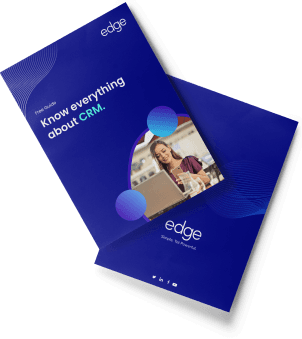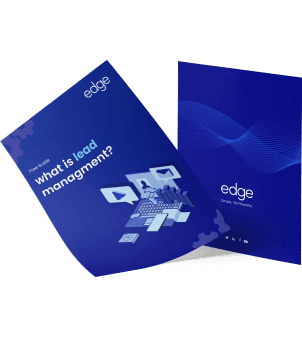Try talking to any marketer or a business person in your circle about lead generation, and you will see them speak volumes about how important they are from a business perspective.
Lead generation is highly crucial yet one of the challenging tasks for any company. It is a process of capturing potential customers' attention towards the product or service that you offer and developing their interest gradually in your company so that they share your contact details like an email or a phone number.
With the right strategies implemented across appropriate platforms, you may generate a good number of leads.
But entertaining loose-fit leads for your company just because you want quantity is like aiming your arrows in complete darkness.
We all know how that is going to turn out. It’s pointless and is not going to yield the desired result. That is why the process of lead qualification becomes important.
Lead qualification helps you filter out vain leads and leaves you with more productive and better quality leads, which will improve your conversion rate. It saves you from wasting your time on prospects with the least intent to buy your product and motivates you to disqualify them as a lead.
Broadly speaking, lead qualification divides into two. They are
- Marketing Qualified Leads (MQL)
- Sales Qualified Leads (SQL)
The more you will read on google about these leads, the more confusing it gets. There is absolutely no reason to create a stir around them and stretch the definitions more than required.
In the simplest of language, here is a brief picture of what actually marketing qualified leads and sales qualified leads are.
What is an MQL?
Marketing Qualified Lead, usually referred to as MQL, are a type of leads that still have not reached the final buying stage. They are still considered as your prospect but are ready for nourishing to make them move forward in their buying journey.
For every different business, the defining parameters about regular leads to qualify as MQL are somewhat unique. But deciding on those parameters is vital to avoid missing an MQL or, even worse, considering a premature lead as an MQL.
From a pool of regular leads, qualifying as a marketing qualified lead depends on the number of frequent website visits, pages checked, blogs read, clicks made on the website, or any similar kind of engagement with your company’s content in any form.
What is an SQL?
MQL, when given proper attention, converts into SQL.
Sales Qualified Lead, better known as SQL are basically leads that are ready to get in contact with and are already familiar with your company and not completely new.
The sales team gets in touch with sales qualified leads, tries to have individual interaction with them based on the behavior of their customer journey, and aims to close the deal.
What is the difference between MQL and SQL?
It is evident that MQLs and SQLs are different in their nature, but sometimes it is possible that the lines might get blurred when you do not have specific and clear differentiating parameters.
Marketing qualified leads are generally more in number, but sales qualified leads are more on the qualitative side.
MQLs have engaged with your company in the past and have knowledge about what kind of vibe or values your company has. But having said that, a number of people could be visiting your website or maybe downloading your free e-books, but that does not necessarily mean that they will get converted into an SQL.
Just for an instance, your family members might read some of your blogs or check out your website out of love for you but it is not true that they are in need of the service that you are providing , which makes them almost a useless lead.
Sales qualified leads should have a value, need, and budget for whatever service you are giving or the product you are selling.
While with marketing qualified leads, your focus is to nurture them and build their interest in your product, with sales qualified leads, it is to make a sales call and drive them to take the final action.
Key points to focus on for better qualification of leads
Establish specific qualification points
There should be no scope of ambiguity when it comes to deciding factors upon how the splitting of leads takes place. The process of qualification of leads must have a pre-decided framework to avoid any unnecessary lead becoming a MQL. There is no general set of rules to follow in this. You can set your own qualification points based on the size of your company, your industry, or your ideal end target.
Trust the process
Every lead is somehow unique. Take your time to make the leads sales-ready depending on their individual customer behavior and journey rather than rushing the process and end up with leads that have no potential to convert.
Trust your marketing team and let them pull off their planned tactics to gather and nourish the leads properly before they pass it on to the sales team.
Ensure good sync between your marketing and sales team
Proper communication between your marketing and sales team will definitely boost your ratios of lead conversion. Sales team would have a good idea about which prospects better fit your company. The marketing team can then develop strategies to attract only those kinds of leads and try nurturing them. This way, you gain more promising leads and a better sync is established between your company’s internal teams.
Chase valuable characteristics
It is important to spot leads whose behavior is a better fit for your company. Determine whether your leads have the need and value for your service that can solve their pain point. Also, whether they are from the right industry according to your product and if they have a suitable budget to make the final purchase. These are some valuable characteristics to look for before qualifying your leads into MQL and helps you save time and energy.
Final Thoughts
Consider these points when developing a framework for SQL and MQL for your organization.
Hope my insights on this topic are helpful for you. Share this article with someone who is a sales and marketing enthusiast!












